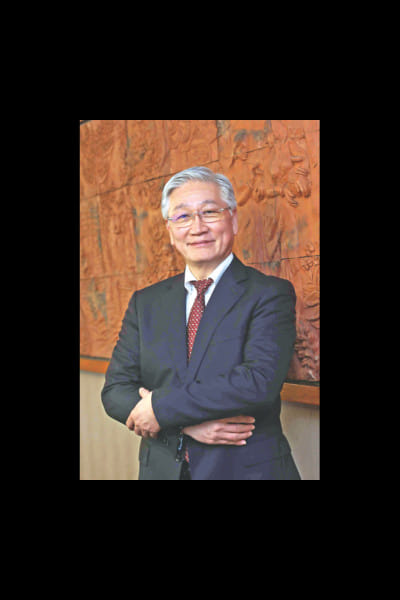Japanese power firm to expand in Bangladesh

Japan's Mitsubishi Hitachi Power Systems (MHPS) plans to expand its footprint in Bangladesh in a bid to grab more market shares.
As part of the move, the thermal power generation company, which has operations in America, Europe and Asia, has opened its full-fledged office in Dhaka last Monday.
Ken Kawai, chief of the Asia-Pacific region of the MHPS, said the company has already set up five mega gas turbine plants in Bangladesh, with a total power generation capacity of 2,000 megawatts.
“We have planned to expand our operation rapidly to meet Bangladesh's appetite for energy,” he said during an interview with The Daily Star at the Pan Pacific Sonargaon hotel in Dhaka.
Presently, Bangladesh's power generation capacity stands at around 20,000MW and the government has set a target to increase it to 24,000MW by 2021 and to 40,000MW by 2030.
Growing industrialisation and urbanisation has made Bangladesh one of the power-hungry countries in the world, drawing attention of many global companies.
Along with the Japan government, the MHPS contributed to Bangladesh's development by way of setting up its first steam turbine in 1960 for Fenchuganj fertiliser power plant, Kawai said.
In 1966, the company installed a steam turbine for Karnaphuli Paper Mill, which is still operating. The MHPS provided the country's first gas turbine in 1987 for the old Haripur gas turbine.
“Our new branch office will engage us more in Bangladesh. We can set up high-efficiency gas turbine and coal-fired power plants more now, helping the country's development eventually,” said Kawai, who joined Mitsubishi Heavy Industries in 1979.
The office will progressively strengthen the company's sales capabilities in the coming projects, especially those based on thermal power facilities, planned by both the Bangladesh government and the private sector, Kawai said.
He said the five power plants installed by the MHPS were capable of generating 40 percent of the country's power generated by large turbines.
Kawai, who will be promoted to the post of the global chief executive officer of the company next month, also talked about technology transfer and know-how by the MHPS to Bangladesh.
“Thanks to our own presence, local companies and experts will immensely benefit from our technical know-how.”
The MHPS will transfer technology along with skilled Japanese experts more to Bangladesh, setting up power plants and maintaining them, which will help the country's young engineers and individuals enhance their knowledge, said Kawai.
The company's major business is in Asian countries, especially in Japan, India and the Asean and it plans to widen its global footprint, Kawai said.
In the global perspective, General Electric and Siemens are the main competitors of the company in the field of power generation through large gas turbines but its market shares have surpassed the companies, securing number one place in the world, he said.
The MHPS is a joint venture formed in February 2014 by Mitsubishi Heavy Industries and Hitachi to consolidate business with strong capacity.
Kawai called the bilateral relation between Bangladesh and Japan excellent and praised Bangladesh for maintaining a steady economic growth for over a decade.

 For all latest news, follow The Daily Star's Google News channel.
For all latest news, follow The Daily Star's Google News channel. 



Comments